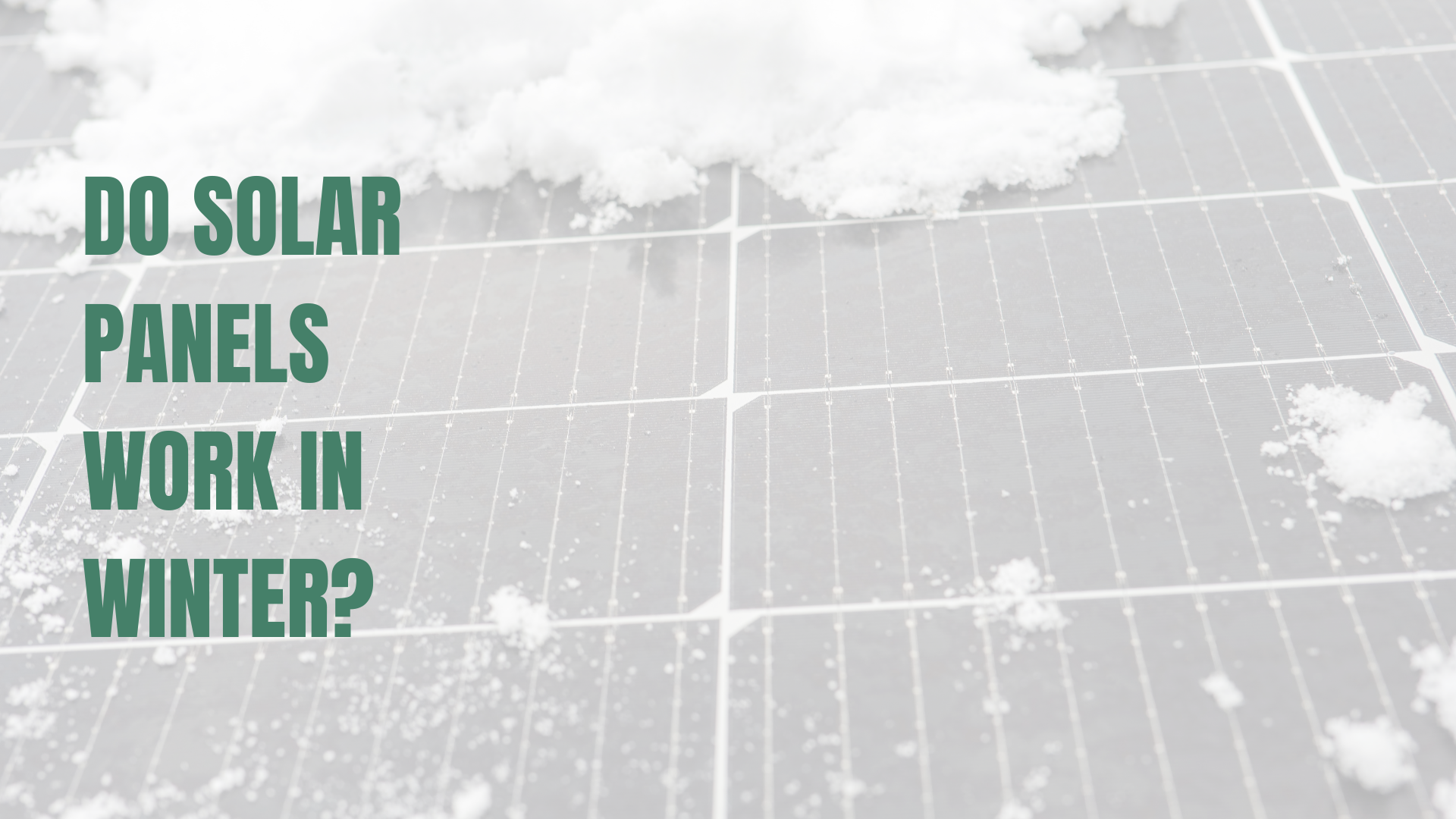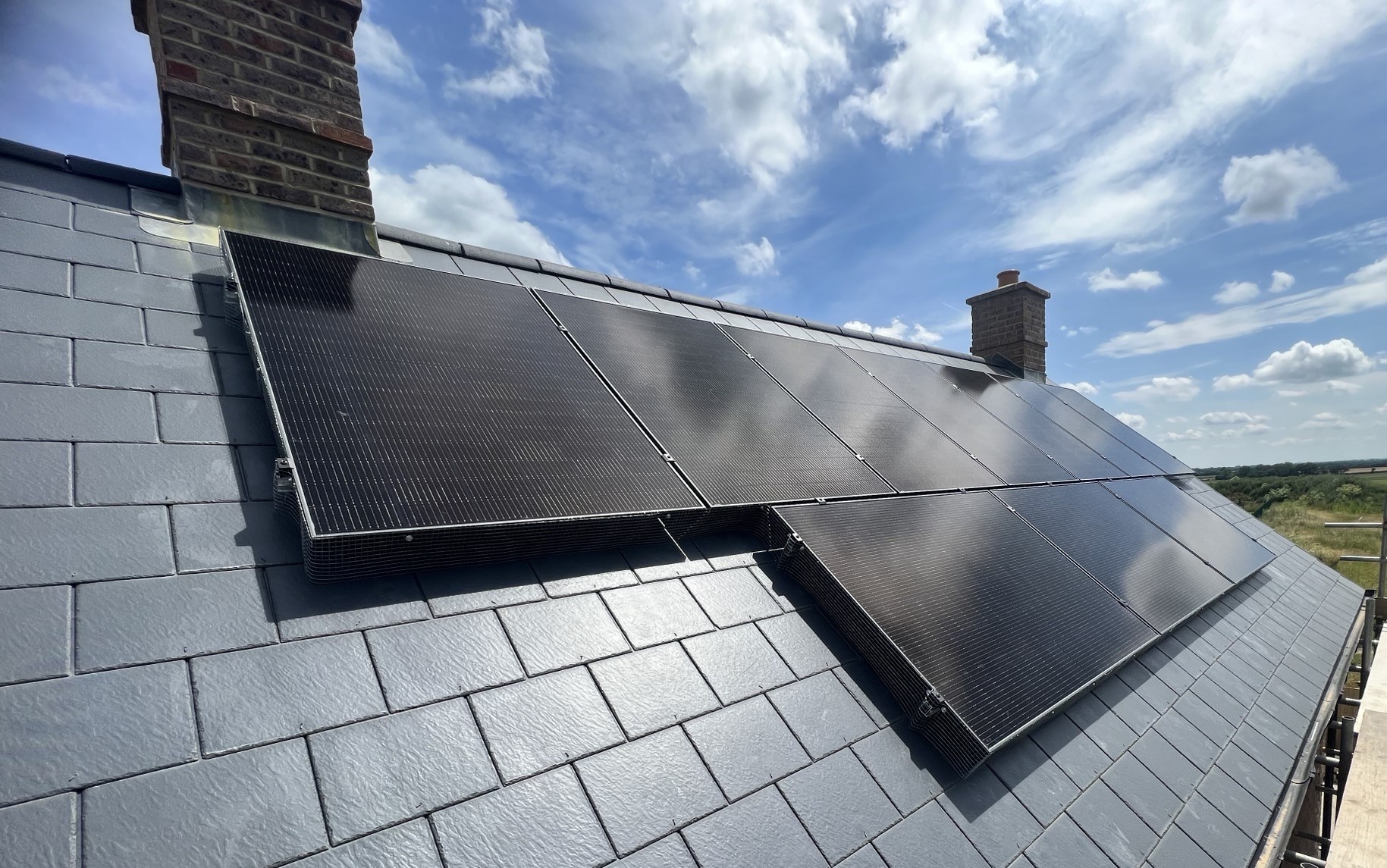If you’re considering a solar panel installation in Essex, London or the South East, one common question we hear is: Do solar panels still work in winter?
With shorter days and colder weather, it’s natural to wonder if you’ll still get value from your investment. In this guide we’ll explain how solar panels perform in winter, the impact of snow and clouds, and simple tips to optimise your solar generation during the winter months.
Do Solar Panels Work in the Winter?
The short answer: yes!
Luckily, solar panels generate electricity from sunlight, not the sun’s heat, so even on cold, sunny days your panels will still generate electricity without the efficiency being affected. In fact, solar panels can operate more efficiently in cooler conditions.
What affects performance in winter is the daylight hours. Shorter days and lower sun angles, mean your solar panels simply receive less sunlight. Cloudy and overcast days are more common too, which can also reduce electricity output, but your panels are still working, producing roughly 80% of their maximum output on partially cloudy days.
How Much Does Winter Affect Solar Panel Output?
During winter, solar panel output drops because:
- Days are shorter
- Sunlight is weaker due to lower sun angles
- Cloud cover is more frequent
For example, a 3.5kW solar panel system typically produces around 362kWh per month in summer, but only 52kWh per month in winter.
Even with the reduced output, solar panels will still offset your electricity costs, especially if you are using electric heating systems like heat pumps or underfloor heating.
Top Tip: pairing your solar PV panels with solar battery storage can help reduce your energy bills even more. A correctly sized solar battery can help you have around the clock free electricity to power your home, or in winter months can be charged using off-peak lower rates, to help reduce your electricity bills even further.
Can Solar Panels Work in Snow?
Solar panels do work in snowy conditions, but the amount of electricity produced will depend on the thickness of the snow.
- Light snow (like what the South East usually experiences) usually melts quickly and doesn’t significantly affect performance.
- Heavy snow can block sunlight or cause damage to panels. Most South East homes rarely experience heavy snowfall, but it’s worth checking your handover pack for the panels’ datasheet for weight tolerance.
Bonus: melted snow can naturally clean your panels, improving efficiency once the snow clears.
Best Time of Year for Solar Panels
The most productive months for solar panels are May to July, when days are longest (15-16 hours) and there are fewer rainy days. November to January are the least productive months, with only around 8 hours of daylight and more overcast days. However, even during winter months, your solar panels still generate free electricity for your home, saving you money on your energy bills.
How to Optimise Solar Panel Performance in Winter
Even though winter sunlight is limited, you can maximise your solar energy generation with these tips:
- Clear heavy snow – preventing a loss of electricity generation
- Use electricity during the day – run energy heavy appliances during the day, while your panels are generating electricity.
- Consider solar battery storage – store excess electricity for evening use instead of exporting to the grid.
Get Solar Panels Installed Today
Even with a winter dip in performance, solar panels remain a smart investment for homeowners across Essex, London and the South East. With rising energy costs, there’s never been a better time to invest in renewable energy.
Ready to make the switch? Contact SolarTherm UK for your free bespoke quote and design, tailored to your property, usage and future energy needs. No hard sell, just honest, expert advice.
Your home. Your energy. Your future.





